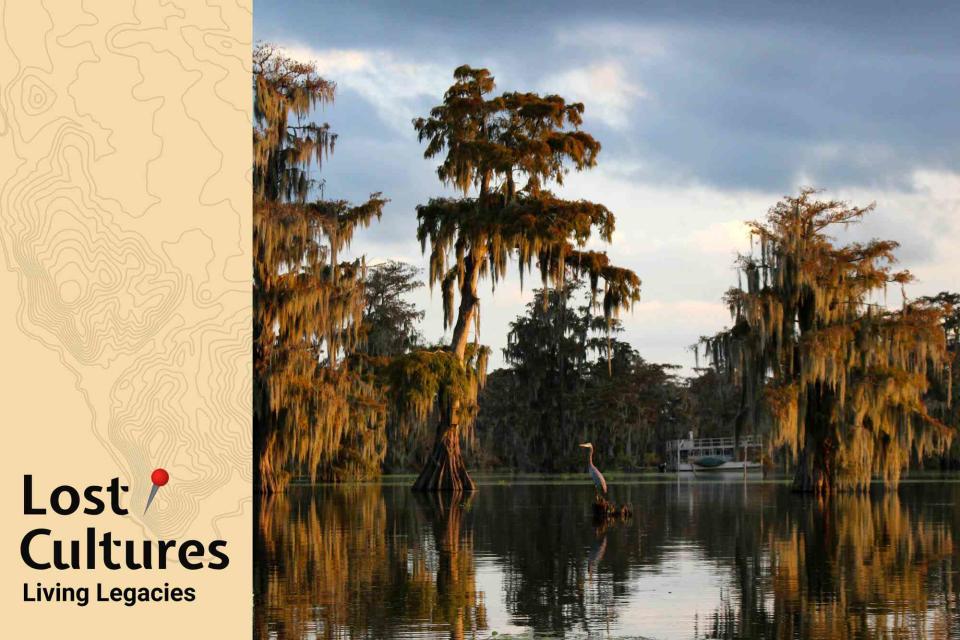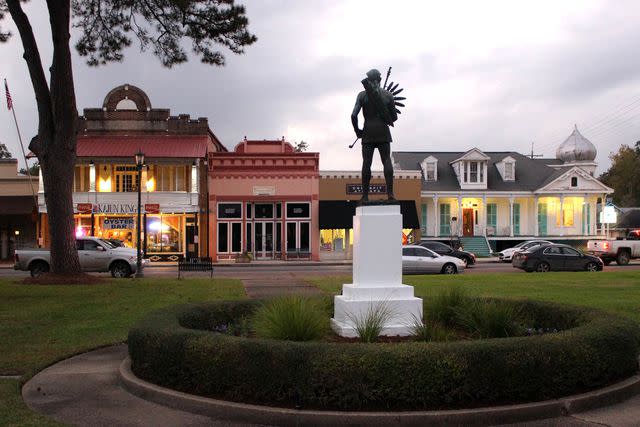What We Can All Learn From the Cajuns and Creoles — the Stunningly Adaptive People of South Louisiana
For more than three centuries, Cajun people have shaped Louisiana into what it is today. Learn about their fascinating history in this week's episode of "Lost Cultures: Living Legacies."

Patrick Donovan/Getty Images
Every Wednesday on the Lost Cultures: Living Legacies podcast, host Alisha Prakash, Travel + Leisure's associate editorial director, explores a unique cultural identity around the world and shares how you can learn more about it on your travels, too.
It’s hard to overestimate the importance of the Cajun culture in the American South. For more than three centuries, Cajun people have shaped Louisiana into what it is today. But what, exactly, does that mean? How did this culture, infused with elements from several continents, meet here and thrive for so long?
First, it’s important to give you a sense of place. There are several parishes in south Louisiana that are collectively known as Acadiana — AKA Cajun country. And while the vibrancy of Cajun culture — its food, music, and sense of celebration — is embraced there and across the nation, that wasn’t always the case.
“The people who became the Acadians were French settlers in the new world in the early 17th century,” professor Barry Ancelet says. “One of the first French settlements in North America was in what came to be Acadie in 1604. The people there, then, were not thinking of themselves as Acadians yet. They were French settlers of course.”

Patrick Donovan/Getty Images
Sunset view of bronze statue of Attakapa Indian (1961, unknown artist) and buildings on the public town square in the Acadian (Cajun) town of Saint Martinville, Saint Martin Parish, Louisiana.As Ancelet explains, those initial settlers not only made their home in Louisiana but embraced the way things already were, working with the Indigenous community to form a new way of life, rather than imposing their old.
“They so utterly integrated themselves that they developed a new sense of identity. And that word, ‘Acadiens,’ that they used to call themselves, came from the place, Acadie, which is what the indigenous people called the place: Cadie,” Ancelet said. “They are, to my knowledge, the first group of European settlers in the new world to begin calling themselves by a term that came from the new world and not the old world.”
However, the first major upheaval occurred during the French and Indian War, when each side was aided by allied Native American tribes. And, unfortunately for the French colonists, the British population outnumbered them by more than 30 to 1.
“That ultimately resulted in the grand expulsion of the Acadians that began in 1755 and continued for years later, where they were imprisoned and hunted down and put on boats and forcibly sent away,” Ancelet explains, before later facing the Americanization project that tried to strip them of their language. However, this was far from the end for the Acadians. Through songs, stories, and expression, their legacy lives on today, remaining an example to us all of what a melting pot America could look like. “What most people love about South Louisiana culture is the result of that cultural fusion that happened between African and European influences that found themselves both away from their original homes, in a new place where such combinations were possible," Ancelet said.
To learn more about the Cajuns and Creoles, listen to Prakash's conversation with professor Barry Ancelet, musician Louis Michot, and entrepreneur Marie Dacote-Comeaux in Lost Cultures: Living Legacies, available on Apple Podcasts, Spotify, Amazon Music, and everywhere podcasts are available.
Editor's Note: Please be mindful that this transcript does not go through our standard editorial process and may contain inaccuracies and grammatical errors.
For more Travel & Leisure news, make sure to sign up for our newsletter!
Read the original article on Travel & Leisure.

